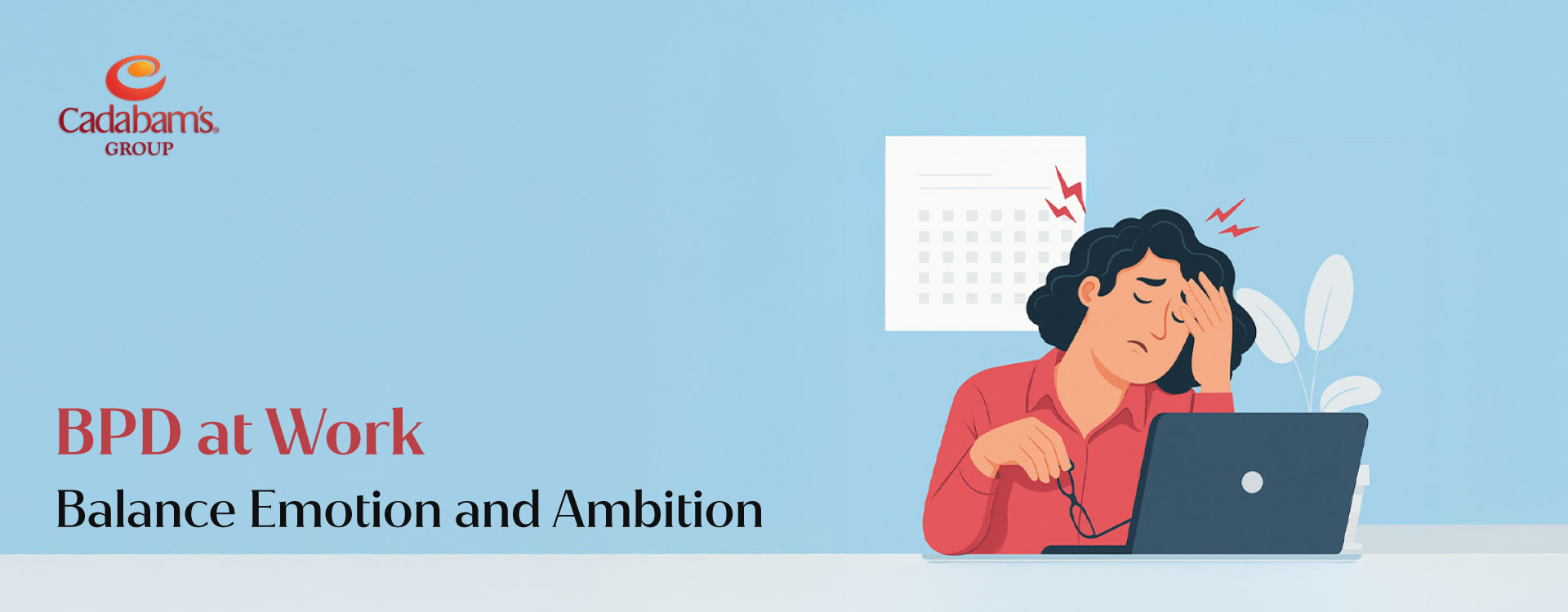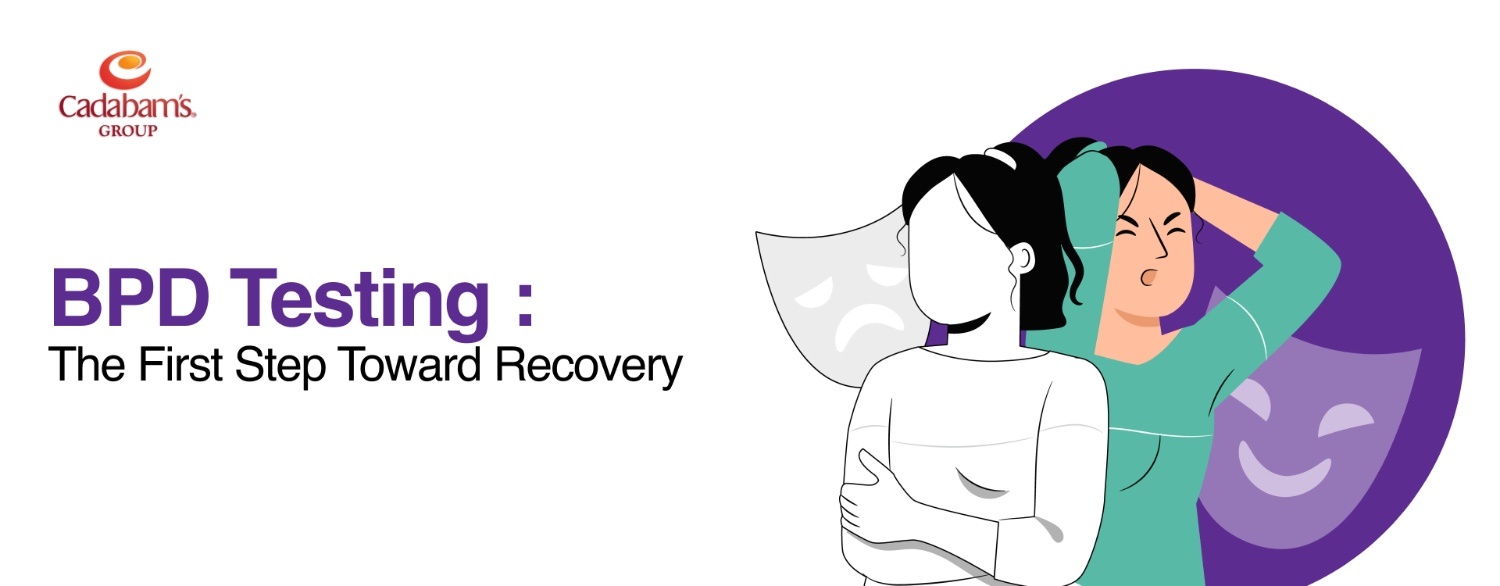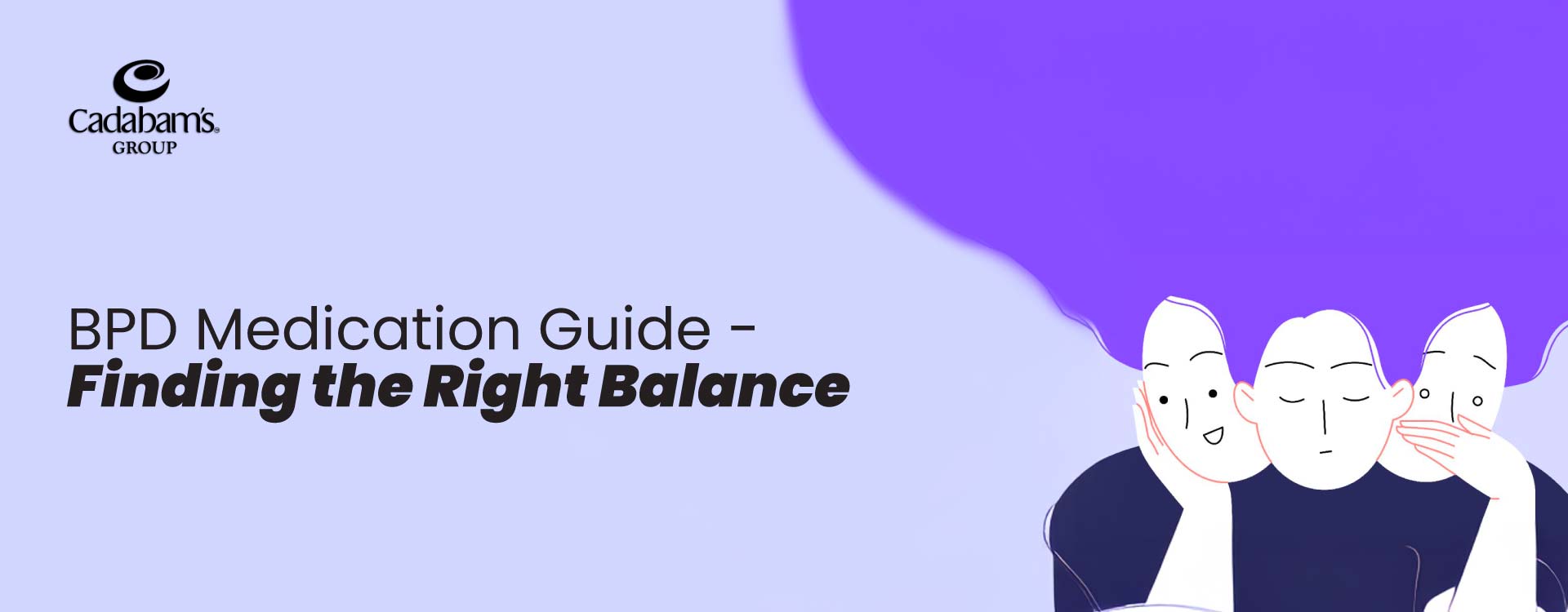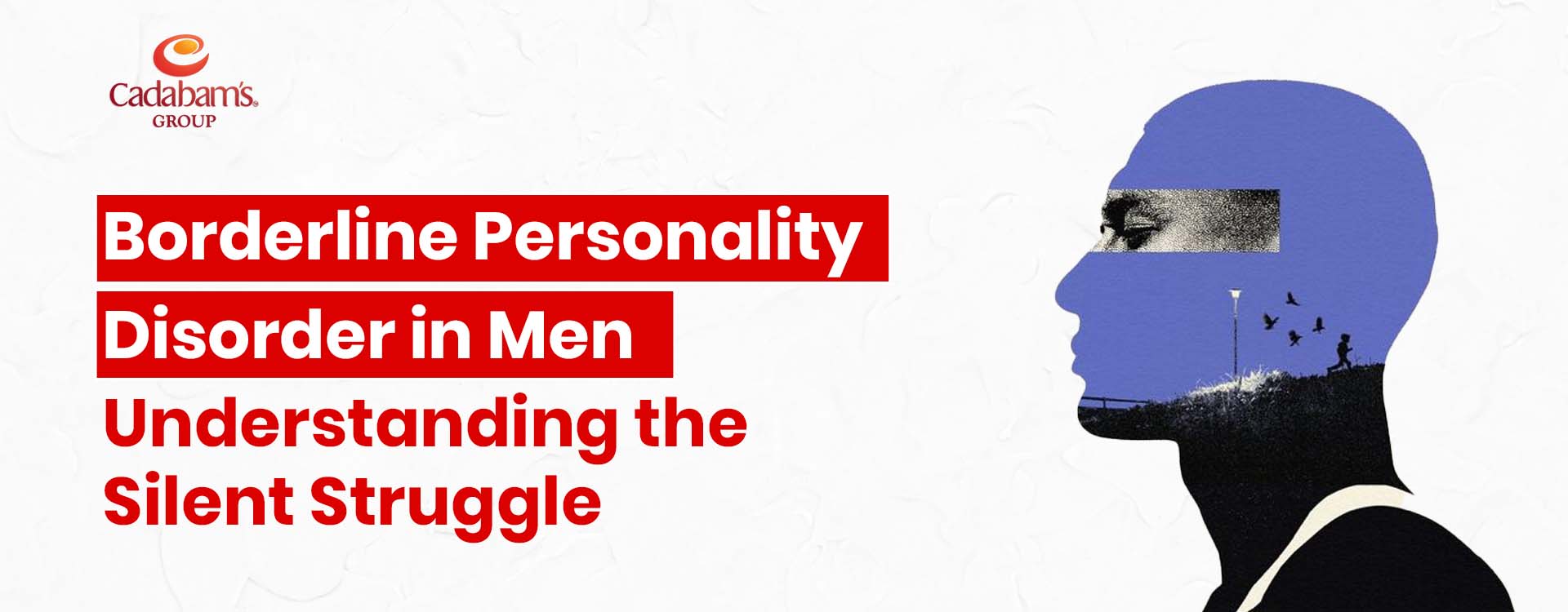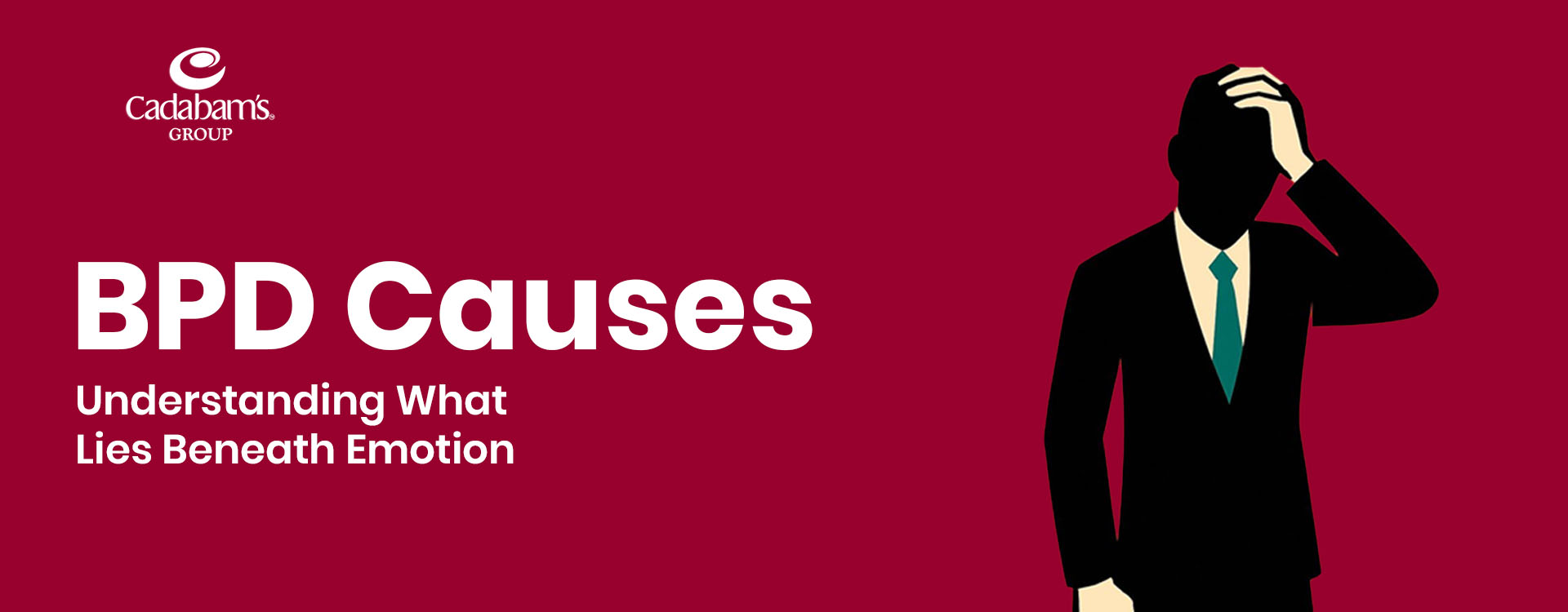Personality Disorder
There are 10 different types of personality disorders. These patterns of experiences and behaviors begin in late adolescence or early adulthood. Without treatment, personality disorders are chronic and can last an entire lifetime.
At Cadabams, we provide a wide range of therapeutic services that are best catered to manage symptoms of specific personality disorders. Our multispecialty team of mental health professionals also ensures that you or your loved one get the best possible care with personalized treatment plans made especially for you.
Common Signs & Symptoms of Personality Disorders
- Erratic behaviour – Sudden mood or behaviour changes
- Suspicion and mistrust – Difficulty forming trusting relationships
- Risky activities – Repeated involvement in harmful actions
- Severe mood swings – Rapid fluctuations affecting stability
- Relationship difficulties – Strained or short-lived due to social and emotional challenges
- Challenges at school or work – Difficulty concentrating or cooperating
- Need for instant gratification – Impulsive decisions, ignoring long-term consequences
Our Professionals
Causes of Personality Disorders
Personality disorders arise from complex interactions between genetic predispositions, environmental factors, early trauma, and developmental experiences. Understanding these personality disorder causes provides insight into the risk factors and potential interventions.
Heredity
Genetic factors play a significant role in the development of personality disorders, with a higher risk observed in individuals with a family history of such conditions, indicating hereditary personality disorder causes.
Structure and Function of the Brain
Abnormalities in brain structure and function, particularly in areas controlling emotions and impulse regulation, have been linked to the emergence of personality disorders. These biological factors can be influential causes of personality disorder symptoms affecting behaviour and emotional responses.
Childhood Trauma
Experiences of trauma, neglect, or abuse during childhood significantly contribute to the development of personality disorders by impacting emotional regulation, self-image, and interpersonal relationships, establishing itself as a leading personality disorder cause.
Family Dynamics
Dysfunctional family relationships or a family history of mental health disorders can increase the risk of developing a personality disorder. For example, a lack of parental nurturing or overly critical parenting styles are notable personality disorder causes linked to unhealthy behavioural patterns.
Difficulties in Cognitive and Emotional Development
Difficulties in cognitive and emotional development during critical developmental stages can contribute to the formation of unhealthy patterns of thinking and behaviour patterns, often seen as causes of personality disorders.
Personality and Temperament
Individual differences in temperament, such as a natural predisposition towards anxiety or aggression, can interact with environmental factors, making them potential personality disorder causes.
Interaction of Factors
The development of personality disorders often results from a complex interplay between these genetic, environmental, and psychological factors. For instance, a genetically predisposed individual facing trauma or dysfunctional family dynamics during formative years may be at higher risk, highlighting the multifaceted nature of personality disorder causes.
Understand the various aspects of this condition

Types of Personality Disorders
The Diagnostic and Statistical Manual of Mental Disorders (DSM-5) categorises ten distinct personality disorders under three different clusters. These are:
Cluster A Personality Disorders
Characterised by behaviours that may be perceived as strange or odd, people with Cluster A personality disorders are socially awkward and withdrawn. They are suspicious of those around them and, as a result, detach themselves from their relationships. People with Cluster A personality disorders could also have a family history of schizophrenia.
There are three personality disorders clubbed under Cluster A:
Paranoid personality disorder
People with paranoid personality disorder tend to be suspicious of others. Their actions are governed by the belief that people are out to get them, even when there is no evidence to substantiate their claim. Consequently, they feel threatened and struggle to put their faith in anyone.
Schizoid personality disorder
This disorder makes people unable to form and maintain relationships, and neither do they show a desire for the same. They are detached, distant, and indifferent. People with this disorder express little to no emotion. They seem to not care for either praise or criticism and may engage in solitary activities.
Schizotypal personality disorder
Characterised by odd and peculiar beliefs, thoughts, behaviour, and appearance, people with this personality disorder are often perceived as bizarre. They tend to be superstitious and socially withdrawn.
Cluster B Personality Disorders
People with Cluster B personality disorder struggle with impulse control and emotional regulation. They often experience intense and unstable emotions and engage in behaviours that are performative, irresponsible, and sometimes, even illegal.
The personality disorders under Cluster B include:
Antisocial personality disorder (ASPD)
People with this disorder show a disregard for others. They are rash, irresponsible, and aggressive, and they may violate others' rights to get their way. Their actions often inhibit their own safety. This disorder is characterised by an inability to abide by society’s rules and regulations. They may commit serious crimes and show no remorse for their actions.
Borderline personality disorder (BPD)
Characterised by unstable moods and poor self-image, people with this disorder tend to be impulsive. They have fragile egos and go to great lengths to prevent being abandoned. People with the disorder display inappropriate outbursts of anger and often have intense and chaotic relationships. They may experience a chronic feeling of emptiness and may engage in self-harm.
Histrionic personality disorder
Marked by a constant and excessive need for attention. People with histrionic personality disorder have dramatic outbursts, exaggerate, and often speak with quick, dramatic succession in emotions. They use their appearance to draw attention to themselves and often believe that their relationships are more profound than they are.
Narcissistic personality disorder
People with narcissistic personality disorder exhibit a sense of entitlement and an exaggerated sense of superiority. They often dream of success and power. However, their preoccupation with prestige is an attempt to mask their fragile self-esteem. They seem arrogant and self-centred and display a lack of empathy and understanding for others. They may exploit others for their own benefit and think that their own needs and feelings are more important.
Cluster C Personality Disorders
People with Cluster C personality disorders often shy from criticism and rejection. They do not always confront their fears or embark on new activities. They do not take personal risks either.
This cluster includes:
Avoidant personality disorder
People with avoidant personality disorder avoid social contact. They exhibit extreme shyness and are sensitive to criticism. In fact, their desire to be alone is fuelled by their concern over being embarrassed or judged. They fear rejection and perceive themselves to be socially inept or not good enough.
Dependent personality disorder
People with this personality disorder struggle with making everyday decisions for themselves. They need others to assume responsibility for their life. When left alone, they feel helpless and are often governed by the fear of separation. In a relationship, they focus their energy on pleasing the other person and have a need for constant reassurance. They tend to avoid confrontations and have difficulty expressing their disagreement.
Obsessive-compulsive personality disorder (OCPD)
Perfectionists, people with this personality disorder, have an obsessive need for control, order and cleanliness. They are set in their ways and are inflexible in their morality and values. Their preoccupation with details makes it difficult for them to finish tasks. People with obsessive-compulsive personality disorder may work relentlessly, often leaving no time for leisure or social activities.
Find nearest mental health center now

Rehabilitation of Personality Disorders
Personality disorder treatment through rehabilitation involves a comprehensive approach that aims to reduce symptoms, improve functioning, and help individuals lead more fulfilling lives. This process typically includes tailored psychotherapy to address problematic thinking patterns and behaviours, skill-building to enhance interpersonal and coping skills and medication management for co-occurring symptoms like anxiety or depression. Rehabilitation may also involve social skills training, vocational rehabilitation, and support groups to provide a supportive community and practical assistance. Cadabams focuses on holistic recovery and empowers individuals to achieve improved mental health and well-being by providing individuals with the tools and resources they need to navigate their disorder, improve their relationships, and increase their ability to cope with life's challenges.
Transforming Lives Affected by Personality Disorders with Cadabams
At Cadabams, we're dedicated to transforming lives affected by personality disorders through our comprehensive and personalised treatment programs. Our expert team utilises a blend of psychotherapy, medication management, and holistic approaches to address the unique challenges of each individual. Join us on a journey toward healing and empowerment, and start rewriting your story today with Cadabams by your side.
If you are searching for a solution to your problem, Cadabam’s Rehabilitation Centre can help you with its team of specialised experts. We have been helping thousands of people live healthier and happier lives for 30+ years. We leverage evidence-based approaches and holistic treatment methods to help individuals effectively manage personality disorders. Get in touch with us today. You can call us at +91 96111 94949.
Listen to Our Expert Insights on Personality Disorder
Our centres where we treat Personality Disorder
Diagnosis of Personality Disorders
Personality disorder diagnosis involves a comprehensive assessment by mental health professionals. This process typically includes detailed interviews with the individual, psychological evaluations, and, often, input from family or close associates to understand behaviour patterns over time. Clinicians use specific criteria from the Diagnostic and Statistical Manual of Mental Disorders (DSM-5) to confirm a personality disorder diagnosis, focusing on long-term patterns of thinking, feeling, and behaving that significantly deviate from cultural expectations. The diagnosis is made carefully, differentiating personality disorders from other mental health issues and considering the overall impact on the individual's functioning.
Personality Disorder Treatment
Personality Disorder treatment focuses on managing symptoms and improving quality of life through a combination of psychotherapy, medication, and, sometimes, hospitalisation in severe cases.
Psychotherapy
- Cognitive Behavioural Therapy (CBT) aims to recognise and transform negative thinking and behaviour patterns, guiding individuals toward more effective coping strategies.
- Dialectical Behaviour Therapy (DBT) combines cognitive-behavioural techniques with mindfulness practices, emphasising emotional regulation, distress tolerance, interpersonal effectiveness, and self-awareness.
- Group Therapy offers a nurturing environment where individuals can exchange experiences, gain insights from peers, and hone social skills in a secure environment.
- Family Therapy involves family members in the treatment process, helping to improve communication, resolve conflicts, and understand the disorder's impact on family dynamics.
- Psychodynamic Psychotherapy explores unconscious patterns and early life experiences that influence current behaviour and emotions, aiming to deepen self-awareness and understanding of personal dynamics.
- Psychoeducation informs individuals and their families about the disorder, its effects, and coping strategies, empowering them with the knowledge to manage symptoms and improve overall functioning.
These therapeutic treatment approaches can be used alone or in combination, depending on the individual's condition, to provide comprehensive treatment for personality disorders.
Medication
While there are no medications specifically approved for personality disorder treatment, various drugs prescribed by psychiatrists can help manage symptoms or co-occurring conditions. Antidepressants, mood stabilisers, antipsychotics, and anti-anxiety medications may be prescribed to alleviate symptoms like depression, mood swings, impulsive behaviour, and anxiety, contributing to overall stability and functioning improvement.
Crisis Management in Personality Disorder Treatment
Personality disorder treatment during a crisis involves immediate intervention to ensure safety, stabilise acute symptoms, and prevent harm. This may include hospitalisation, short-term medication adjustments, and intensive therapy sessions. Effective crisis management requires a coordinated approach, leveraging healthcare professionals to address the immediate crisis and plan for long-term stability and care.
Find out about centres, daily updates and more about mental health

Why Choose Cadabams for Personality Disorder?

33+ years of focused mental healthcare, shaped by 1000+ real patient journeys.

State of the art mental health centres built for treatment and recovery.

A coordinated team of psychiatrists, psychologists, counsellors, and rehabilitation specialists supporting your care.

Support from early signs through treatment and recovery.

Treatment guided by clear plans that continue beyond diagnosis.

Planned follow ups and continued guidance to help maintain progress over time.
Facilities & Amenities
Frequently Asked Questions
Different Treatment options for personality disorders include medication. Medication helps in reducing the symptoms of the disorder. Another treatment avenue is psychotherapy as well. Treatment can be availed on OPD basis, in-patient basis and in rehabilitation centres.
Individuals with Borderline Personality Disorder have serious problems in emotional regulation. They also face problems in impulse control and have fears of being abandoned. As a caregiver, it is important to understand the disorder and its complexities to deal with the individual. However, with treatment and assistance, a person with BPD can lead a fulfilling life.
Borderline Personality Disorder is a Personality Disorder that comes under Cluster B of personality Disorders. Here the individual has problems with emotional regulation, impulse control and relationship management. Largely, individuals with BPD have a problem in maintaining stable relationships. However, with treatment and understanding, a person with BPD can have a healthy relationship.
Personality Disorders are serious mental health disorders that require treatment. While they cannot be completely cured, treatment options can help an individual manage the condition better.
Multiple Personality Disorder is now known as Dissociative Identity Disorder. The disorder has multiple causes behind it. But one of the more common causes is the presence of severe trauma in a person's childhood.
Personality Disorders are serious mental health disorders that can cause significant dysfunction in person's life. Based on the core symptoms, personality disorders are classified into three types: Cluster A, B, and C.
Case Studies
Our Programs
Our Testmonials
Blogs you may be interested in
Helpline at your fingertips
+91 9611194949

.webp)








-min.webp)



.avif)

-min.webp)

.avif)

.avif)
.webp)

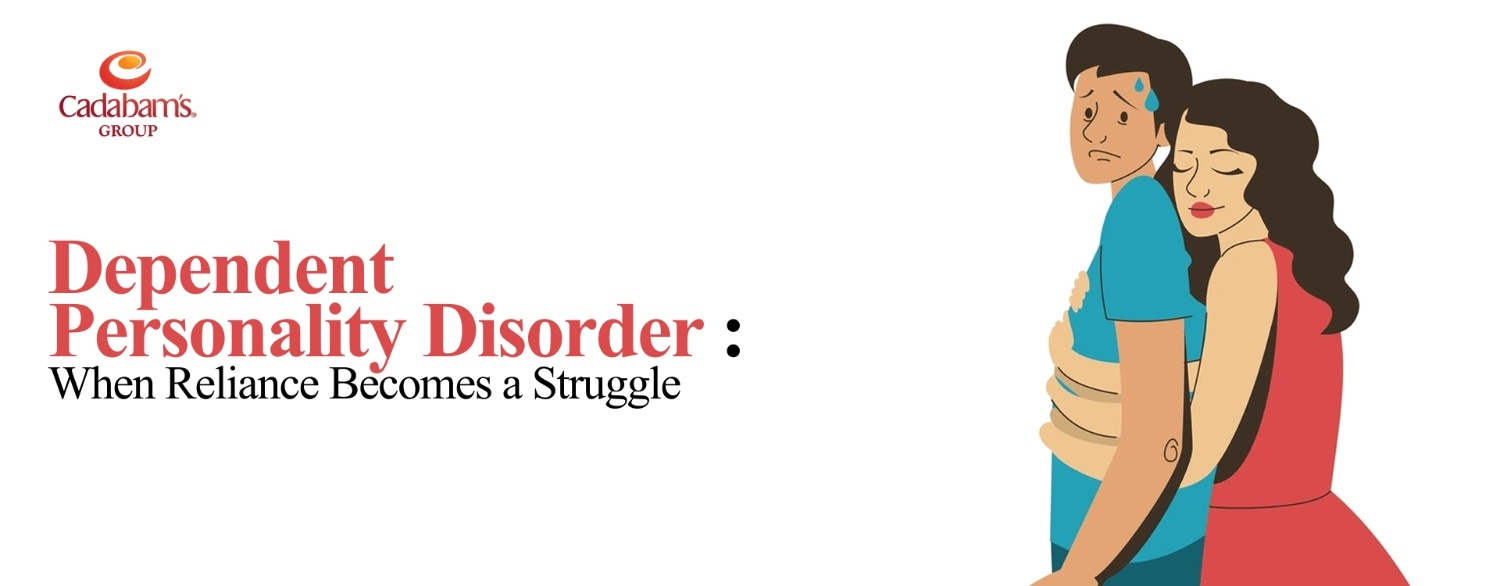





_-Causes%2C-Symptoms-%26-Treatment-with-text%202.avif)








